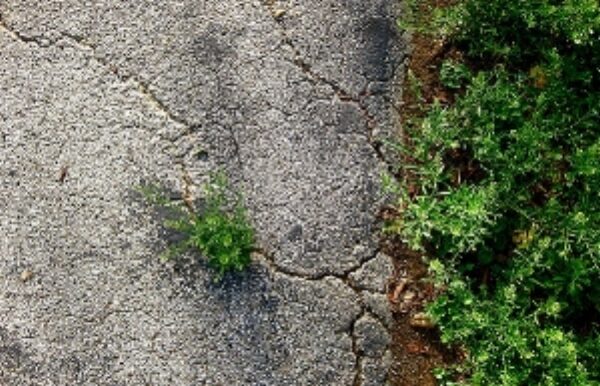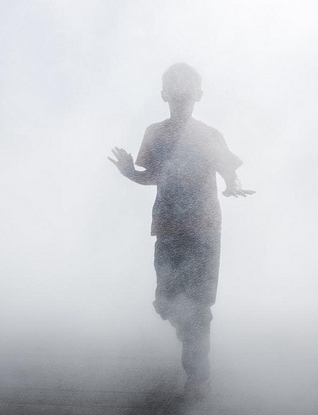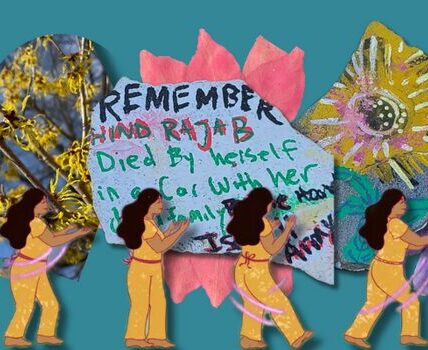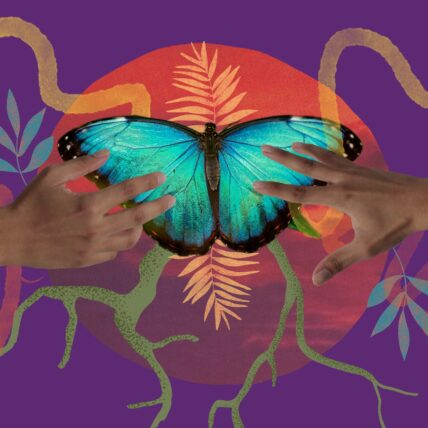As MAG staff continuously deepens our own learning and practice in the five elements that we believe are critical to a thriving justice ecosystem, we will be sharing more from our individual learning journeys alongside other kinds of learning. In this blog, Mark Leach shares his personal and continuing learning journey regarding inner work.
A Personal Break Through
This is a vignette of a recent consulting engagement, which for me contained one personal breakthrough moment in a lifelong quest to increasingly trust my own intuition and inner wisdom. This moment lives at the intersection of inner work and complexity, where the ability to show up personally and professionally with presence, clarity of thought, and openness of heart and mind is essential to navigating spaces where no one can predict what will happen. It is a not a story of privileging heart and intuition over conceptual learning and theory, although some may be tempted to see it as so.
A colleague and I recently co-facilitated a 5-day healing and strategy workshop for a remarkably courageous and effective organization. In recent years the organization had been through a roller coaster experience of rapid growth followed by a devastating loss of key funding, program and internal trust. They needed a new way forward strategically but to even begin those conversations there were enormous gulfs of misunderstanding and trust to be bridged; not a unique situation in our line of work, but an extreme version to be sure.
We designed a flow for the week that was grounded in pre-workshop empathy interviews with a diagonal slice of organization members, and all the best research and practice on transition, loss, emotional intelligence and conflict resolution and on. And we began each session with some sort of grounding or reflective practice (like deep breathing, simple yoga, invitations to drop from the thinking head into the feeling body, etc). This was not a big cultural shift or challenge for this group.
To begin to soften and complicate the “we vs. them” mindsets that had developed, and to humanize staff who had been blamed for the crisis and others who felt their early warnings had been ignored, we began with some powerful but light ways for participants to learn more about each other and ground the work in authentic appreciation of the efforts of colleagues. We also did some exploration of core values to expand the field of awareness beyond the problems and crisis to what drew these committed people together in the first place.
With that foundation we then planned to turn closer to the heart of the matter—by asking people to address the following questions:
- What is on your mind and heart about what has happened in the organization recently?
- What has been personally lost in this time? What has been organizationally lost?
- What do you feel you need to hear and what do you need to say in order to feel more complete about what has happened?
It Seemed Like a Good Plan
The plan was to build out from individual reflection (in writing, drawing, or movement) to conversation and sharing in pairs, in groups of six and in the whole group of forty.
It seemed like a good plan. But during the sharing in groups of six and just before we were about to talk in the full group, my intuition told me something was wrong.
In listening in on the pairs and groups of and in observing body language, it was clear that people were “on task,” taking the questions seriously, and seemed truly to be listening to one another, and there was some good, heart-felt sharing happening. But as we went from pairs to groups of six something else was happening; some people seemed to be moving back into their heads, concepts and pre-existing habitual ways of thinking that had developed during the crisis.
Listening to My Inner Wisdom
Completely out of the blue, a poem called The Place Where We Are Right, came to mind. So I told my colleague I wanted to insert something in the design between the groups of six and the beginning of the full group dialogue and asked her to “trust me on this one.”
From my phone I read aloud to the group Yehuda Amichai’s poem:
From the place where we are right
Flowers will never grow
In the spring.
The place where we are right
Is hard and trampled
Like a yard.
But doubts and loves
Dig up the world
Like a mole, a plow.
And a whisper will be heard in the place
Where the ruined
House once stood.
I then asked a staff member sitting next to me, a woman known for her wisdom and ability to not get stuck in defensive habits of mind, to re-read it, slowly.
Then Something Began to Happen
As she read, I looked around the circle and people were moved. Some were keenly attentive, eyes glistening. Some were sitting, eyes closed, seemingly drinking it in. A few looked puzzled. And one young woman—a very poised, competent professional–was weeping. I don’t know what was happening for her, but for me the poem put me back in touch with the sadness of opportunities lost and damage I have done—in my personal life and my professional life. And for me it extended from there to lost opportunities in the pursuit of love, dignity and justice in our nation’s shared life—opportunities to truly understand and see one another, to quest for dignity and justice from a place of fierce compassion and love—opportunities lost to individual or organizational pride, to ego, to self protection, to systemic oppression and ultimately to fear.
To navigate these perilous and complex times I feel the need more than ever to be able to access these deep recesses of my heart, to trust the innate wisdom and insight which is my natural birthright if I choose to claim it—every day and in every moment.
I’ll close this posting with a wonderful “inquiry question” from a teacher of mine—a question that I return to from time to time, that has no one or enduring answer, and which seems drawn from the same well of wisdom as Yehuda Amichai’s poem:
What is right about holding on to what you know?
Banner Image Photo Credit: CJ Sorg | CC BY-SA 2.0






